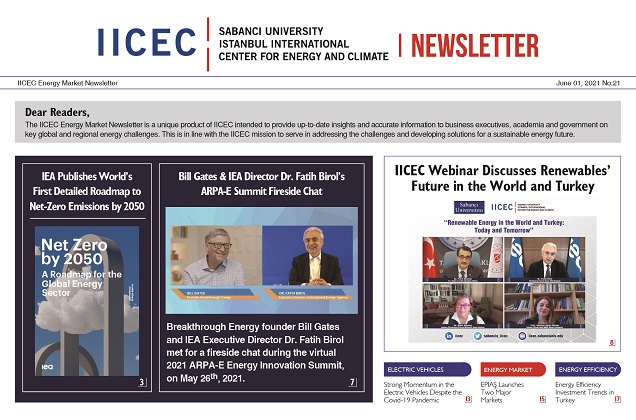02/06/2021
Sabancı University Istanbul International Center for Energy and Climate (IICEC) has released the twenty-first issue of IICEC Energy Market Newsletter.

02/06/2021
Realized online for the first time this year, Sabancı University Winter High School continued to host students from different parts of Turkey. Students participating in the education acquired basic information about university-level science and technology.
01/06/2021
Information TechnologyNon Thesis Master Program: This program creates an opportunity towards a career in the IT area for newly graduates and those professionals planning a major change in their career track. The curriculum has a rich enough spectrum that's suitable for IT professionals as well as who would like to improve their skills and broaden their expertise in the area.
01/06/2021
Sabancı University MBA program is a full-time program welcoming students without prior work experience and hands on training program offering Company Action Projects in top multinational and local companies in Turkey during their education.
17/05/2021
The Center of Excellence for Functional Surfaces and Interfaces for Nano Diagnostics (EFSUN) is pleased to announce the Best Paper Award to recognize their scientific achievements via articles outstanding young scientists have authored, in part or full, related to Functional Surfaces and Interfaces published within the last 3 years (between 2018-2021). Application deadline is 6 August 2021.